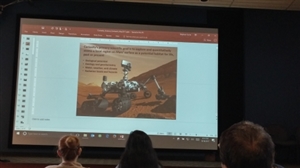In a recent press release, it says:
“At NMiTE we believe that engineering education can be different.
We’re here to unlock the creativity and drive of Britain’s next generation – the Passioneers – the designers and builders, problem solvers and innovators who will shape our future.
We’re here to unlock the creativity and drive of Britain’s next generation – the Passioneers – the designers and builders, problem solvers and innovators who will shape our future.
We’re establishing a new model of high-value engineering education:
- Creating a beacon institution to help address the engineering skills shortage that threatens to hobble the UK’s ability to compete globally.
- With a new approach to learning – based on real-world problem solving and the blending of high quality engineering, design, liberal arts and humanities with communication and employability skills targeted at the growth sectors of the future.
- Located on a new and different type of campus – designed for inspiration, collaboration and a deep connection to the global community.
- And reinforced by an innovation ecosystem of global corporations & SME entrepreneurs, coupled with global universities, not just to invest, but to contribute knowledge and expertise – with New Model students at its centre.
We’re shaping an institution to create and deliver 21st century engineers – catalysts for innovation and change – a new model generation of emotionally intelligent entrepreneurs, innovators, employees and leaders for the future."
Two things strike me as very different about this proposition:
- Its motto is “no lectures, no exams, no text books” (!). It plans to be very practically-based, largely conducted within real industry.
Apparently, it will also have no departments, no faculties, no tenure, no Council. Instead, it’ll have “teaching teams designed around the delivery of our unique engineering and Human Interaction curriculum” (developed by an impressive, international, and overwhelmingly academic array of advisors and partners).
- It’s located in the city of Hereford (admittedly partly a personal one as a resident of Herefordshire for over 30 years).
It is a city by virtue of its cathedral but it is one of the smaller cities in the UK with a population of just over 50k, and is in England's first or second most rural county (depending on how you rank it). Hereford’s engineering heritage is largely unremarkable as it is known more for its agricultural and food output (beef, potatoes, strawberries, apples, cider(!), beer, etc.) and of being home to the UK's elite special forces regiments. It has engineering history in munitions production from during WWII and it's current engineering association is with food production, double-glazing, Morgan chassis and JCB cab manufacture, insulation material forming, and that’s largely it. So, not the most obvious choice to base a new Advanced Engineering University then!
The NMiTE project has been described (The Times 6th Sep 2016) as “at worst an intriguing experiment and at best an innovative template that traditional universities might learn from”.
What do you think?
As an aside, I have seen nothing of NMiTE in these forums or indeed on the IET website – yet, apparently (and quite rightly) the IET has been an advisor/contributor/supporter.
As a footnote, I would very much like to reach out and connect with any IET members/fellows that are/have been involved in NMiTE with a view of my getting involved too.

